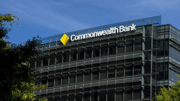Rising cost of dining out could have serious consequences–up to 25 per cent more on your bill!
By
Maan
- Replies 24
The rising cost of dining out has sparked a heated debate, especially as Australians face unexpected charges on Sundays and public holidays.
While some argue these surcharges are necessary to keep businesses afloat, others question their fairness.
The issue came into sharp focus during the back-to-back Easter and Anzac Day long weekends, where some venues added as much as 25 per cent to bills.
As long weekends like Easter and Anzac Day passed, a new conversation was sparked: the rising surcharge on Sunday and public holiday dining.
Many cafes, pubs, and restaurants charged up to 25 per cent more on these days, leaving some Aussies frustrated.
Prime Minister Anthony Albanese weighed in, questioning why such charges were becoming the norm.
'The market is choosing to do that,' he shared.
Venue owners defended their actions, claiming these surcharges were essential to keep operations running due to rising costs.
Costs of goods, wages, and utilities were all cited as reasons why businesses were forced to add extra to bills, especially on public holidays.
'If you have an underclass of working people not being paid properly, without proper wages and conditions, you will see social division,' Albanese added, pointing to the wages of hospitality workers as a major concern.
The Prime Minister also recalled his own experience of earning penalty rate wages in the past while working in a restaurant, and mentioned that customers didn’t need to pay extra to cover those costs.
Surcharges on Sundays were typically between 10 and 15 per cent, though on public holidays, they could reach as high as 25 per cent.
A typical breakfast for two, consisting of two $6 coffees and two $15 bacon and egg rolls, would total $42.
On a Sunday, a 15 per cent surcharge would add an extra $6.30 to the bill.
For public holidays, some venues had higher surcharges, with costs increasing by $8.40 on Easter Sunday.
A report revealed that over the long weekends, Australians were expected to spend $98.4 million at cafes, restaurants, and pubs, with $24.6 million of that going towards surcharges.
Drp Bar, a Melbourne juice bar owned by Ahmed Wassel, said staff penalty rates were the main driver behind his 15 per cent surcharge during Easter.
Wassel explained that over the four-day long weekend, his business had to cover an additional $5,000 in costs due to the higher wages for his staff.
Wassel shared a video highlighting the increase in hourly rates during a public holiday, joking that his workers were 'earning CEO wages.'
Hourly rates ranged from $30.13 to $62.45, with part-time and full-time staff entitled to double rates, while casual workers were paid double and a half.
Wassel acknowledged that the surcharge didn’t come close to covering the increased costs, especially when factoring in rising rent, energy, and operating costs.
Dan Dick, a Melbourne cafe owner, also spoke about surcharges being a necessity for businesses.
He noted that without these surcharges, venues would essentially run at a loss on days when they had to pay higher wages and face other operational challenges.
A survey of over 9,300 Yahoo Finance readers found that the majority, 63 per cent, believed it was fair for venues to add a surcharge on public holidays.
While businesses are allowed to set their own surcharge rates, they must be transparent about them.
The Australian Competition and Consumer Commission (ACCC) stated that all surcharge information must be clearly communicated before customers make a purchase.
If the menu doesn't list prices, the surcharge information must be displayed in a prominent way.
There is no legal cap on how much venues can charge for surcharges on these days.
In a previous story, we explored the growing concerns over hidden costs in the hospitality industry and how they’re impacting everyday Aussies.
With surcharges becoming a common theme, the situation continues to raise eyebrows across the nation.
For more on how these additional charges are stacking up, read the full article here.

With surcharges becoming a common sight on public holidays, do you think they're fair or simply another way for businesses to cover rising costs? Share your thoughts in the comments below.
While some argue these surcharges are necessary to keep businesses afloat, others question their fairness.
The issue came into sharp focus during the back-to-back Easter and Anzac Day long weekends, where some venues added as much as 25 per cent to bills.
As long weekends like Easter and Anzac Day passed, a new conversation was sparked: the rising surcharge on Sunday and public holiday dining.
Many cafes, pubs, and restaurants charged up to 25 per cent more on these days, leaving some Aussies frustrated.
Prime Minister Anthony Albanese weighed in, questioning why such charges were becoming the norm.
'The market is choosing to do that,' he shared.
Venue owners defended their actions, claiming these surcharges were essential to keep operations running due to rising costs.
Costs of goods, wages, and utilities were all cited as reasons why businesses were forced to add extra to bills, especially on public holidays.
'If you have an underclass of working people not being paid properly, without proper wages and conditions, you will see social division,' Albanese added, pointing to the wages of hospitality workers as a major concern.
The Prime Minister also recalled his own experience of earning penalty rate wages in the past while working in a restaurant, and mentioned that customers didn’t need to pay extra to cover those costs.
Surcharges on Sundays were typically between 10 and 15 per cent, though on public holidays, they could reach as high as 25 per cent.
A typical breakfast for two, consisting of two $6 coffees and two $15 bacon and egg rolls, would total $42.
On a Sunday, a 15 per cent surcharge would add an extra $6.30 to the bill.
For public holidays, some venues had higher surcharges, with costs increasing by $8.40 on Easter Sunday.
A report revealed that over the long weekends, Australians were expected to spend $98.4 million at cafes, restaurants, and pubs, with $24.6 million of that going towards surcharges.
Drp Bar, a Melbourne juice bar owned by Ahmed Wassel, said staff penalty rates were the main driver behind his 15 per cent surcharge during Easter.
Wassel explained that over the four-day long weekend, his business had to cover an additional $5,000 in costs due to the higher wages for his staff.
Wassel shared a video highlighting the increase in hourly rates during a public holiday, joking that his workers were 'earning CEO wages.'
Hourly rates ranged from $30.13 to $62.45, with part-time and full-time staff entitled to double rates, while casual workers were paid double and a half.
Wassel acknowledged that the surcharge didn’t come close to covering the increased costs, especially when factoring in rising rent, energy, and operating costs.
Dan Dick, a Melbourne cafe owner, also spoke about surcharges being a necessity for businesses.
He noted that without these surcharges, venues would essentially run at a loss on days when they had to pay higher wages and face other operational challenges.
A survey of over 9,300 Yahoo Finance readers found that the majority, 63 per cent, believed it was fair for venues to add a surcharge on public holidays.
While businesses are allowed to set their own surcharge rates, they must be transparent about them.
The Australian Competition and Consumer Commission (ACCC) stated that all surcharge information must be clearly communicated before customers make a purchase.
If the menu doesn't list prices, the surcharge information must be displayed in a prominent way.
There is no legal cap on how much venues can charge for surcharges on these days.
In a previous story, we explored the growing concerns over hidden costs in the hospitality industry and how they’re impacting everyday Aussies.
With surcharges becoming a common theme, the situation continues to raise eyebrows across the nation.
For more on how these additional charges are stacking up, read the full article here.
Key Takeaways
- Australians are facing surcharges up to 25 per cent on Sundays and public holidays, sparking debate.
- Prime Minister Albanese questioned the fairness of these charges, pointing out the impact on hospitality workers' wages.
- Venue owners argued that higher wages and rising operational costs made surcharges necessary to stay afloat.
- A survey found that 63 per cent of Australians believed public holiday surcharges were fair.
With surcharges becoming a common sight on public holidays, do you think they're fair or simply another way for businesses to cover rising costs? Share your thoughts in the comments below.








